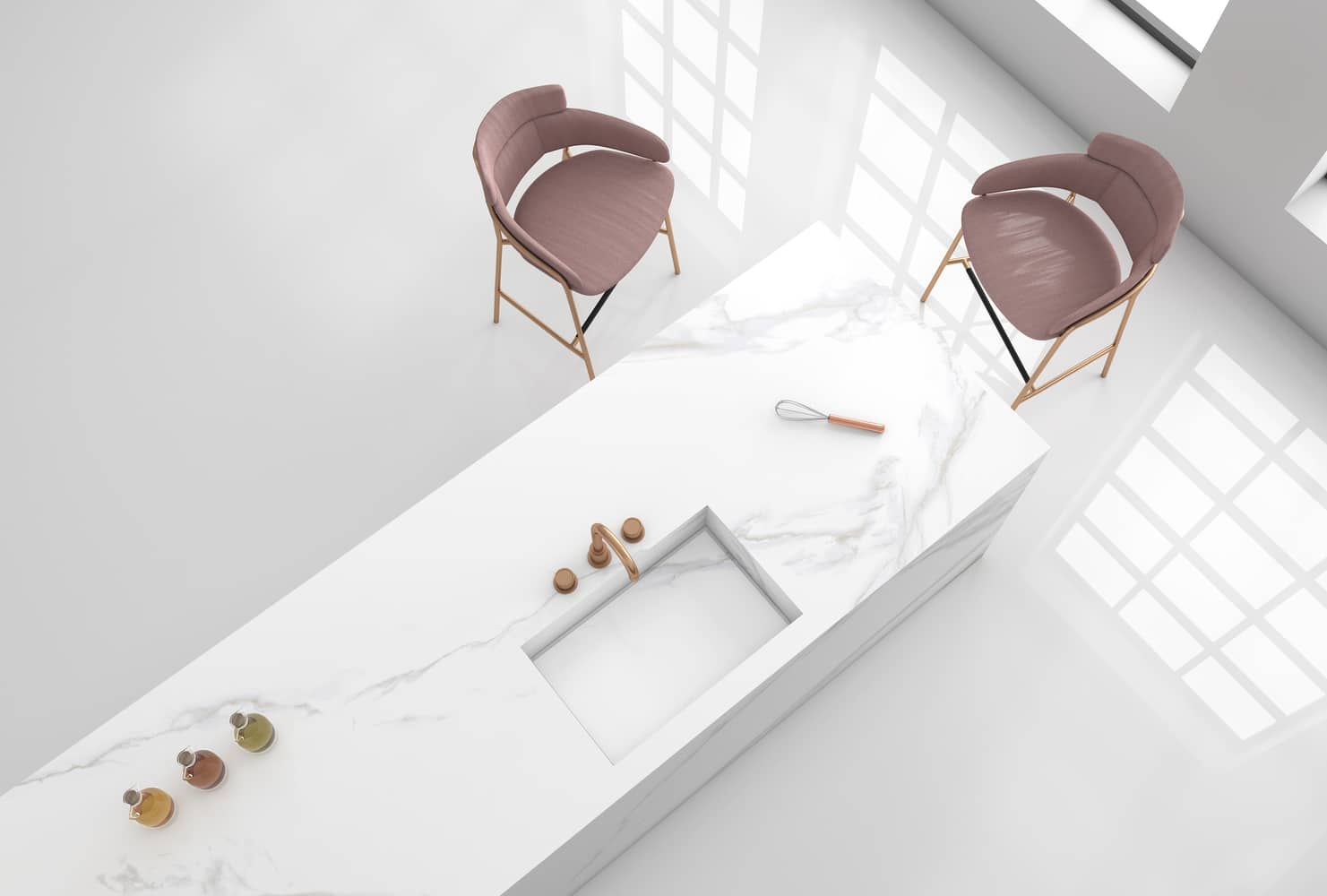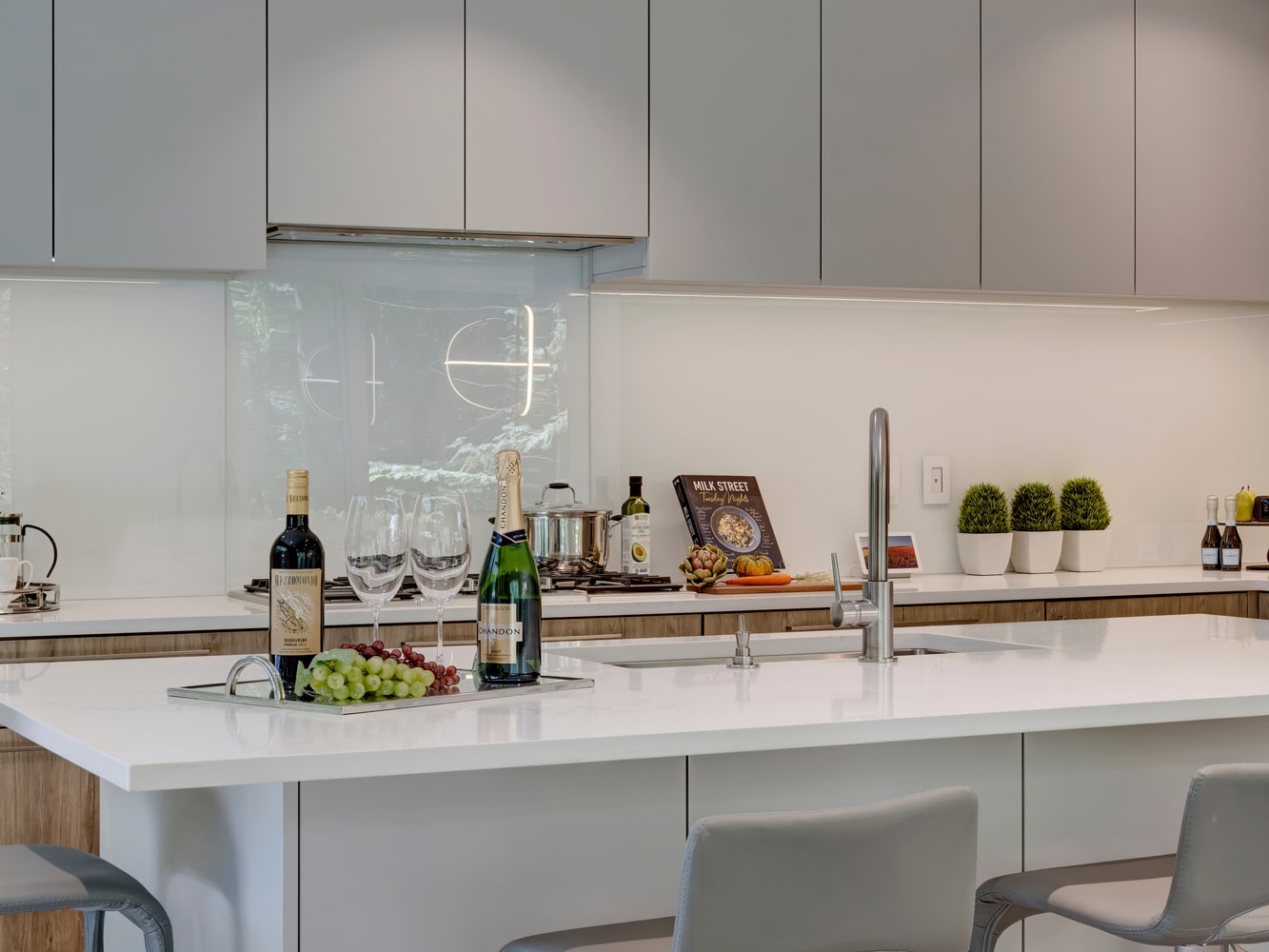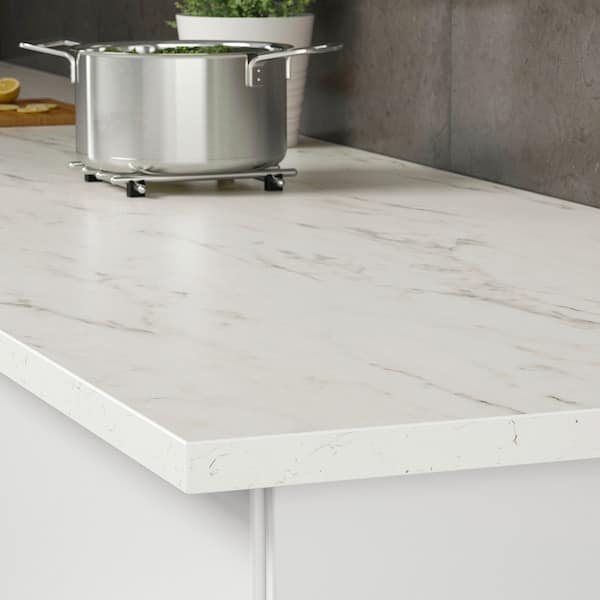
You’ve decided to install marble countertops in your kitchen, but how do you maintain them? Here are some tips to make them look their best. Marble countertops are durable, easy to clean, and naturally beautiful. Read on to learn how to care for them properly. But before you start cleaning, consider the maintenance options available. Here are some important tips to help you get started. After all, you’ll need to use your countertop every single day. Below are a few tips to help you care for your marble countertop.
Marble Countertops Maintenance: A Comprehensive Guide
Maintaining marble countertops is essential for preserving their beauty and longevity. Unlike other materials, marble requires specific care routines due to its porous nature. Regular cleaning with mild soap and water is recommended. Avoid acidic or abrasive cleaners, as they can etch the marble surface. For stains, a poultice made from baking soda and water can be effective.
Investing in a quality marble sealer can also contribute greatly to the countertop’s durability. A sealant forms a protective layer on the marble surface, preventing liquids from seeping into the porous stone and causing stains or damage. It’s advisable to apply a sealant annually, or as directed by the manufacturer, to keep your marble countertops in the best condition possible.
Apart from regular cleaning and sealing, the way you use your marble countertops also matters. Unlike granite or quartz, this stone isn’t heat resistant. Therefore, ensure not to place hot pans or dishes directly onto the marble, as it can cause discoloration or cracks. Always use trivets or potholders to avoid potential damage.
Another important tip to keep in mind is to wipe up spills immediately. Due to its porous nature, marble can absorb liquids rapidly, risking permanent stains. Whether it’s water, wine, or coffee, be sure to clean the spill as soon as it happens.
Moreover, even though the marble surface is relatively hard, it can scratch easily. To protect your marble countertops from unnecessary scratches, avoid using knives directly on the surface and opt for a chopping board instead.
Similarly, avoid dragging heavy objects across your counter to keep it free from unsightly marks. The weight of the object combined with the friction could lead to scratches or dents on your marble surface.
In conclusion, while marble countertops provide an elegant and luxurious look to your kitchen or bathroom, maintaining them requires a bit of extra care compared to other countertop materials. However, with regular cleaning, sealing, and careful usage, your marble countertops can impress and endure for many years. For more detailed care instructions, Marble Institute of America provides a comprehensive guide.
Best Practices for Protecting Marble Surfaces in Your Kitchen
To protect your marble countertops, use coasters under all glasses, particularly those containing alcohol or citrus juices. Trivets or mats should be used under hot dishes and cookware to prevent thermal shock. Cutting directly on marble is not advised as it can scratch the surface; always use a cutting board.
Further care should be taken when placing small appliances such as blenders, toasters or coffee machines on your marble countertop. These appliances may vibrate or move slightly during use, which can cause scratches or chips on the surface. It’s advisable to place a small rubber mat underneath these appliances to reduce the risk of damage.
In terms of cleaning the marble countertop, avoid using harsh or acidic cleaners. Instead, opt for a mild, neutral pH cleanser or simply use warm water and a soft cloth for daily cleaning. Acidic substances like vinegar or lemon, in particular, can wear away the surface of the marble over time, resulting in dull spots known as etches.
Spills should be cleaned immediately, especially those from oil, wine, or other potentially staining substances. Marble is porous and can easily absorb these materials, leading to permanent stains. When mopping up spills, make sure not to scrub as it can spread the liquid, increasing the potential staining area. Soak them up gently instead.
If your countertop becomes stained or etched, it is possible to have it restored. However, this can be a costly process, so it is better to avoid damage in the first place. Regularly resealing your marble countertop can help, but remember that sealer is not a one-stop solution; it does not prevent etching and is not totally effective against stains.
Lastly, always consult a professional if you are unsure about anything, as incorrect cleaning and maintenance can cause irreparable damage. Sustaining the longevity and beauty of your marble countertop will require regular attention, but with careful preventative maintenance, it will remain elegant and timeless for many years to come. The National Kitchen and Bath Association offers further tips on protecting kitchen surfaces.
Selecting the Right Marble Countertop for Your Home
When choosing marble countertops, consider the color and veining that best complements your kitchen’s design. Carrara marble, known for its soft gray veins, is a popular choice for a subtle look. For more dramatic effect, Calacatta marble, with its bold veining against a bright white background, might be preferred.
The size and layout of your kitchen are also important factors to consider when choosing marble countertops. If your kitchen is small, lighter-colored marble like Carrara can make it feel more spacious and bright. If you have a larger, open-concept kitchen, however, you might prefer Calacatta marble for its eye-catching contrast and visual interest.
In addition to considering the aesthetic appeal of the marble type, it’s also worth thinking about its durability. Although all marble is essentially limestone that’s been subjected to high temperatures and pressures, certain types are harder and more resistant to stains and scratches. For example, Statuario marble is denser and more durable than Carrara marble.
Your personal lifestyle is another critical factor to consider. If you tend to cook frequently and need a countertop material that can withstand heat, stains, and scratches, quartzite and granite are alternatives to marble that you might want to consider. If, on the other hand, you prefer the unparalleled elegance of marble and are willing to put in the necessary effort to maintain it, then Carrara or Calacatta marble may be the best choice.
Lastly, your budget plays a huge role in determining the type of marble countertop to install in your kitchen. Calacatta marble is generally on the higher end of the price scale due to its rarity and high demand, while Carrara marble tends to be more affordable.
Ultimately, choosing marble countertops is a decision that heavily depends on personal preference, lifestyle, and budget. Whether you opt for Carrara, Calacatta, or a different type of marble, with proper care, your countertops will remain elegant and functional for a long time. The American Society of Interior Designers offers inspiration for selecting the perfect marble for your home.

The Benefits of Sealing Marble Countertops Regularly
Sealing marble countertops is crucial for stain resistance. A quality sealant should be applied at least once a year, or more frequently for heavily used surfaces. Sealants penetrate the stone, creating a barrier against spills and stains, while allowing the marble to breathe.
Marble countertops, in their unsealed state, are porous, making them susceptible to blockages and discoloration from food or liquids that may come into contact with the surface. This porosity, coupled with its delicate nature, requires that a special kind of care is extended to marble countertops, hence the necessity for a quality sealant.
When applying a sealant to your marble countertop, a few steps must be taken into consideration. First, the surface needs to be cleaned thoroughly to remove any dirt, grime or residues. Utilizing a mild, non-abrasive cleaner is advised as harsh cleaners can scratch or dull the marble surface. Once the countertop is clean, it needs to be dried properly to make sure any moisture is eliminated.
Before applying the sealant, it’s important to test it on a small, inconspicuous area to ensure it doesn’t discolor or damage the marble. Once the sealant passes the test, it can be applied evenly over the surface. Using a soft cloth or a paintbrush, distribute the sealant across the countertop, ensuring to cover all areas meticulously, especially the edges.
Leave the sealant on for a specified time, as per the manufacturer’s instructions. Some sealants are immediately absorbed into the stone, while others need a few minutes to penetrate. After the mentioned absorption time, wipe off any excess sealant from the surface. Apply a second layer if the manufacturer’s instructions recommend doing so.
The sealant takes about 24-48 hours to fully dry and cure. During this time, avoid using the countertop to ensure it sets properly. The end result will be a marble countertop that is not only resistant to discoloring and staining, but one which retains its natural beauty, enhancing the aesthetic appeal of your kitchen or bathroom.
Regularly sealing your marble countertop prolongs its lifespan and preserves its elegance. A well-maintained countertop can stand the test of time, maintaining its luster and appeal for generations. Additionally, the process of sealing a marble countertop is a savvy investment that adds to the overall value of a home. As a homeowner, always remember that the durability and longevity of your marble countertops are directly proportional to the care and maintenance they receive. Stone World Magazine provides recommendations on the best sealants for marble.
Innovative Cleaning Solutions for Stubborn Stains on Marble
For persistent stains, specific marble cleaners are available. These products are formulated to tackle tough stains without damaging the marble. For organic stains, like food or wine, a mixture of hydrogen peroxide and a few drops of ammonia can be effective. For oil-based stains, a mixture of a mild liquid detergent and water can be used.
In the case of rust stains, caused by metal objects such as nails, shaving cans, or hardware, you may need to look for commercially available rust removers. But keep in mind that these products may etch the marble surface, so they should be applied carefully and sparingly. A paste of baking soda and water may also be used to gently scrub the rust stains. Rinely thoroughly to ensure no residue is left that could potentially cause further damage.
For ink stains on dark marbles, acetone or lacquer thinner dabbed on a clean cloth can work effectively. For lighter marbles, hydrogen peroxide is typically safer to use. A small amount of these solvents should be used as they could potentially discolor the marble.
For smoky or sooty stains brought by fireplace use, a special poultice made of baking soda and water, or commercial mantel and grate cleaners, can be used. Begin by wetting the surface with distilled water, then applying the poultice, and covering it with plastic film for 24-48 hours. After this period, remove the poultice using a wooden or plastic spatula taking care not to scratch the marble.
Remember, when working with marble, regular cleaning and maintenance can help prevent stains from becoming permanent. The marble should be sealed to prevent staining and etching and should be wiped immediately if exposed to potentially damaging substances. By exercising caution and acting promptly, you can keep your marble looking pristine and beautiful for years to come. For deeper, more entrenched stains, professional restoration services may be necessary. The Stone Care Experts offer a range of cleaning products suitable for marble.
The Art of Repairing Chips and Cracks in Marble Countertops
Minor chips and cracks in marble can often be repaired with a color-matched epoxy or resin. The filler is applied to the damaged area, then sanded and polished to match the surrounding surface. For larger repairs, it’s recommended to consult a professional.
It’s essential to understand that a variety of factors determine the complexity of the marble repair process, such as the extent of the damage, the particular type of marble, as well as the color and pattern. In cases where the cracks are merely superficial, these can be effectively dealt with using a grinder or sander. Professionals use these tools to gently smooth out the surface until the crevices are barely noticeable.
However, even as DIY marble repair is often feasible for minor damages, more substantial damages like deep chipping or heavy scarring will require a seasoned pro’s expertise. Such professionals typically have special tools and compounds designed specifically for recuperating the marble to its original appeal. They’ve mastered the delicate process of restoring natural stone, taking into account the stone’s specific qualities, such as its vein patterns and color.
Apart from this, a professional marble restoration expert also knows how to deal with complicated matters such as acid etching. Acid etching happens when acidic substances come into contact with the marble and causes it to lose its natural shine. While there are home remedies to restore the marble’s radiance, these solutions are often temporary and may not completely restore the stone’s original luster or prevent further damage.
Seeking professional assistance immediately can help prevent small cracks from becoming major breaks and in turn could end up saving you a substantial amount of time, money, and effort in the long run. And while the price of professional repairs might seem high initially, compare this to the cost of completely replacing damaged marble, and it often becomes evident that getting help from a seasoned expert is the more cost-effective and wise choice.
Whether you attempt to repair the marble yourself or seek professional help, remember the timeless elegance of marble is well worth the effort to maintain. The resilience and durability of this luxurious stone make it an outstanding investment for any home or office. As always, consult with a professional if you are unsure, for protecting your investment and preserving the beauty of the marble should always take precedence. This Old House provides DIY tips for minor marble repairs.
Revitalizing Your Marble Countertops: Polishing and Refinishing Techniques
Over time, marble countertops can lose their shine and luster. Polishing them with a marble-specific polish can restore their original beauty. For more extensive refinishing, professional services can grind down the surface and repolish it, bringing back the stone’s natural shine and smoothness.
After the professional refinishing process, any visible scratches and stains on the marble countertops will be eliminated, creating an almost new outlook.
One must remember, however, that marble is a porous and sensitive stone, susceptible to stains and scratches. To maintain the newly polished shine, it’s important to clean up splatters and spills promptly.
Using a soft cloth for wiping and gentle cleaning agents designed for marble can help retain its shine. Acidic cleaners and harsh scrubbing can tarnish the surface. Regular sealing — every six months or annually, depending on the usage — is also recommended. This protects the stone from absorbing liquids and staining.
Moreover, utilizing cutting boards instead of chopping directly on the marble countertops can prevent sharp knife scratches. Also, using coasters under glasses, especially those containing acidic contents like wine and juice, will help reduce ring stains.
Getting marble countertops polished, and ensuring they are well maintained, adds value to your home. Not only do they offer a sophisticated, timeless look to your kitchen or bathroom, but their durability makes it a practical choice as well.
Remember, marble countertops are an investment. Their care and maintenance come at a cost — but if done right, it can be a beneficial long-term investment. You get a beautiful, hardy countertop that, if taken care of, will stand the test of time. Hence, its important to prioritize their upkeep to ensure your marble countertops remain in prime condition for years to come. Architectural Digest often features expert advice on maintaining and restoring natural stone surfaces.
Consider Quartz countertops as an alternative to natural stone countertops.
Not only is quartz a beautiful countertop finish, but it’s also low-maintenance. Since it’s so durable, you don’t have to worry about spills or damage, and it won’t require special cleaners or sealers like other natural stone materials. We always recommend quartz countertops over natural stone due to the low maintenance required.
LG, Silestone, and Cambria produce quartz with subtle gray vein patterns that look like real marble.
The Calacatta Nuvo quartz, for example, mimics Calacatta marble. The Calacatta Gold quartz from Silestone is another option that mimics Calacatta marble with golden gray marble lines.
If you’re not happy with an engineered stone like quartz countertops and must have a natural stone countertop, here are your options:
Natural stone
Granite
The most common natural material used for countertop applications is granite. While granite and marble are hard to beat in beauty and style, marble is more expensive and requires professional installation. Although they share some characteristics, granite and marble are very different in appearance and function.
Granite is an igneous rock, which means it was once molten lava. The lava slowly cooled and solidified into a mass of interlocking crystals. This process can take millions of years. Granite is one of the hardest materials on earth and is resistant to scratching and chipping. It’s also heat-resistant, making it a good choice for kitchen countertops. Granite needs sealing every few years to protect it from staining, but it’s otherwise a low-maintenance material compared to other natural stones.
Soapstone
Soapstone is another attractive material. It is a neutral gray colour that becomes charcoal when treated with mineral oil. Soapstone is one of the most popular countertop materials due to its dense, nonporous nature and durability. It can also withstand high temperatures and daily use. The material can be easily buffed and sanded to achieve the desired look. Although it isn’t as beautiful as marble, soapstone can still add elegance to any design.
Marble
Marble is a metamorphic rock that was once limestone. Over time, the limestone changed form due to the heat and pressure of the earth. This process can take millions of years. Marble is a softer material than granite, making it more susceptible to damage. It’s also a porous material, so it needs to be sealed regularly to prevent staining. Marble is a beautiful material that can add a luxurious look to any space. However, it’s important to note that marble requires more care than other materials.
If you’re set on marble, choose a honed finish. A honed finish is less likely to show scratches and fingerprints, and it’s easier to clean. Plus, it won’t etch like a polished finish when exposed to acidic liquids like citrus juice or red wine.
How to clean marble countertops
Understanding how to clean marble countertops properly is important to keep them looking their best. While marble is naturally stain-resistant, certain types of stains can ruin their shine. To remove stains, use a paste-like cleaning agent or an appropriate chemical. To prevent staining, deal with stains as soon as possible. Then, dry your marble countertop and buff it to regain its lustre. Alternatively, you can use a soft cloth to wipe away spills.
A paste-like cleaning solution will remove grease and other food particles from your marble counters. If you don’t want to mix your paste, you can purchase a pre-made one from a stone maintenance supply company. This paste should be the consistency of thick peanut butter and applied as thinly as possible. According to the Marble Institute, you should apply one-quarter to one-half-inch thick poultices. To apply the paste evenly, use a wooden spatula.
You should always apply a sealant to your marble countertops to protect them from spills and stains. We recommend re-sealing every three to six months. Quality sealants are available from home improvement retailers. A quality product is easy to apply. After applying the sealant, it is time to clean. Once you’ve completed your marble cleaning, you can wipe it dry with a clean cloth. Use a plastic scraper or single-edged razor blade to remove the stain for stubborn spots.
Use warm soapy water and a good dish detergent to clean your marble countertop. This is easier on the environment and is less abrasive on the stone than harsh chemical cleaners. Antibacterial soaps are a great place to start. Rubbing alcohol is also a great disinfectant that won’t harm your marble countertop.
As with any stone surface, marble can get stained if it absorbs moisture. Therefore, it is crucial to wipe up spills immediately or risk having the stains become permanent. This will also prevent staining because acidic liquids will cause the stone to become dull over time. Also, you should avoid acidic substances, such as lemon juice, as they can cause etching.

Long-lasting Beauty
Marble will never go out of style. One of the benefits of marble countertops is their timeless beauty and durability. They can fit in with almost any decor and be found in dazzling white and darker shades. Marble countertops can give any room in your home a classic look and feel. They are smooth, making them perfect for your kitchen and bathroom.
Cost
Adding a marble countertop to your kitchen, bathroom, or even refurbished side tables can dramatically enhance the style of your home. This elegant material is relatively soft so it can be custom-cut to the desired thickness and edge design. The average cost for a real marble countertop is about $150 to $500 per linear foot.
The price of marble countertops is largely determined by the quality and finish of the stone. The price of marble countertops varies greatly, as a slab can be quite rare. Unique features of marble may drive up the price, but most homeowners can afford a moderately priced marble countertop. The more expensive marble slabs, the more labour and transportation costs. The more unique the stone, the higher the price.
Marble countertop installation isn’t cheap, and choosing the right contractor is important. Professionals with experience in the installation process are better equipped to handle this project safely. An average 30-square-foot slab of marble weighs about 200 pounds. Also, marble is soft and fragile, so that it can chip easily.
If you’re set on marble, choose a honed finish. A honed finish is less likely to show scratches and fingerprints, and it’s easier to clean. Plus, it won’t etch like a polished finish when exposed to acidic liquids like citrus juice or red wine. If
it would be our suggestion over natural stone.
Key Consideration Choosing a Marble Countertops for your Home in Metro Vancouver.
Reputation and Expertise in Marble Installation and Design
The reputation of a business is paramount. Look for companies known for their expertise in marble installation and design. A well-established business with positive reviews and testimonials indicates reliability and quality. Check for feedback on their craftsmanship, customer service, and attention to detail. Websites and social media platforms are excellent resources for gauging a company’s standing in the local community.
Quality of Marble Selection and Sourcing
The quality of marble is crucial. Seek businesses offering a diverse range of high-quality marble slabs, including Carrara, Calacatta, and other variants. Each type of marble has unique characteristics, such as veining, color, and durability. A reputable company will source their marble from reliable quarries and suppliers, ensuring that you receive authentic, long-lasting materials for your countertops.
Customization and Personalization Options
Customization is vital when selecting marble countertops. The best businesses offer personalized design services, allowing you to tailor the countertops to your specific aesthetic and functional needs. This includes selecting the marble type, edge design, finish, and dimensions. A business that collaborates with you to create a custom solution indicates a customer-centric approach.
Installation Expertise and Aftercare Services
Professional installation is a critical factor. Choose a company with experienced technicians who understand the intricacies of working with marble. Proper installation ensures the longevity and beauty of your countertops. Aftercare services, such as sealing, polishing, and repair, are also essential. A business that provides comprehensive aftercare demonstrates a commitment to the longevity of their products.
Pricing and Value for Money
While cost should not be the only deciding factor, it is undoubtedly important. Look for competitive pricing that reflects the quality of the marble and the level of service provided. Avoid businesses with prices that seem too good to be true, as they may compromise on material quality or installation standards. A transparent pricing policy, without hidden costs, is a sign of a trustworthy business.
Local Presence and Community Engagement
A local presence is beneficial for several reasons. Local businesses are more likely to understand the specific needs of the community and can provide more personalized service. They also tend to be more accessible for consultations, installations, and follow-up services. Additionally, businesses that engage with the community, whether through local events or sponsorships, often demonstrate a higher level of commitment and reliability.
Sustainability and Eco-Friendly Practices
With growing environmental concerns, the sustainability of materials and practices used by the business is a vital consideration. Look for companies that use eco-friendly methods in sourcing, manufacturing, and installing marble countertops. This not only helps in reducing the environmental impact but also aligns with the growing trend towards sustainable home improvements.
Choose Canadian Home Style for your Vancouver kitchen renovation projects.
Canadian Home Style is your family-owned and operated custom cabinetry retailer with a showroom in North Vancouver, BC. We are the official dealer of Cabico custom cabinetry in the Lower Mainland, providing complete kitchen renovations with an extended lifetime warranty. We always keep up to date with the latest trends and are proud members of the NKBA, National Kitchen and Bath Association. In addition, we have won the Consumer’s Choice Awards back-to-back in 2021, 2022, 2023 and 2024 for our commitment to business excellence. We are considered one of Metro Vancouver’s highest-rated kitchen and bath design and renovation experts. Book now to visit our North Vancouver showroom, where you can get expert advice from one of our kitchen and bath designers. We’re happy to be a part of your journey with your next kitchen renovation project in Metro Vancouver.
Our mission is to help homeowners create beautiful homes that reflect their lifestyles while reducing energy consumption and conserving resources. We do this by providing our clients with innovative products, services and education. We aim to become Canada’s leading sustainable kitchen design and custom cabinetry solutions provider. Our values include integrity, respect, honesty and transparency. These principles guide us as we strive to provide outstanding customer service.
We believe that our success depends on the success of our clients and their customers. We work hard to ensure our clients get the most out of their investments. Our team consists of highly skilled professionals who are experts in their field. They have years of experience working together and know what works and what doesn’t. They understand how to solve problems quickly and efficiently. We are committed to providing excellent customer service. We listen carefully to our client’s concerns and suggestions. We take these into account when planning and executing projects. We always strive to exceed expectations.
Why Choose Us?
Wide Range of High-Quality Countertops
Canadian Home Style provides an extensive selection of countertops, including marble, granite, quartz, quartzite, soapstone, and limestone. Each material is sourced for its unique beauty and durability, ensuring that customers have access to a variety of high-quality options. Whether you’re looking for the classic elegance of marble or the rugged charm of granite, Canadian Home Style has a countertop to suit every taste and design preference.
Expertise in Quartzite and Engineered Stone
In addition to natural stone countertops, Canadian Home Style specializes in quartzite and engineered stone. These materials are known for their strength and versatility, making them suitable for a variety of design applications. The expertise of Canadian Home Style in these materials ensures that customers receive countertops that are not only aesthetically pleasing but also long-lasting and resilient.
Specialized Maintenance Supplies
Understanding the importance of proper countertop maintenance, Canadian Home Style offers specialized products like high-quality sealants, detergents, and mineral oils. These products are specifically designed to maintain the beauty and longevity of your countertops. Whether it’s a spray bottle of gentle cleaner for daily maintenance or a silicone-based sealant for long-term protection, Canadian Home Style provides all the necessary tools for do-it-yourself countertop care.
Custom Fabrication and Installation
Canadian Home Style excels in custom fabrication and installation of countertops. With a team of skilled craftsmen, they ensure that every countertop is precisely measured, cut, and installed to meet the unique requirements of your space. Their attention to detail and commitment to quality ensures that your countertops are not only beautiful but also perfectly integrated into your kitchen or bathroom design.
Educational Resources for DIY Enthusiasts
For those interested in do-it-yourself projects, Canadian Home Style offers educational resources and guidance. From selecting the right type of stone to understanding the nuances of installation and maintenance, their team provides valuable insights and tips to help DIY enthusiasts undertake their projects with confidence.
Sustainable Manufacturing Practices
Canadian Home Style is committed to sustainable manufacturing practices. They understand the importance of environmental responsibility in the production of countertops and strive to minimize their ecological footprint. This commitment to sustainability means that choosing Canadian Home Style is a choice that supports both the beauty of your home and the health of the planet.
Comprehensive Customer Support
Customer satisfaction is a top priority at Canadian Home Style. From the initial consultation to the final installation, their team provides comprehensive support, ensuring that all your questions are answered and your needs are met. Their dedication to customer service makes the process of choosing and installing new countertops a seamless and enjoyable experience.
Services We Offer:
Main Areas of Service in British Columbia:
- Vancouver
- North Vancouver
- West Vancouver
- Burnaby
- Coquitlam
- Squamish
- Whistler





